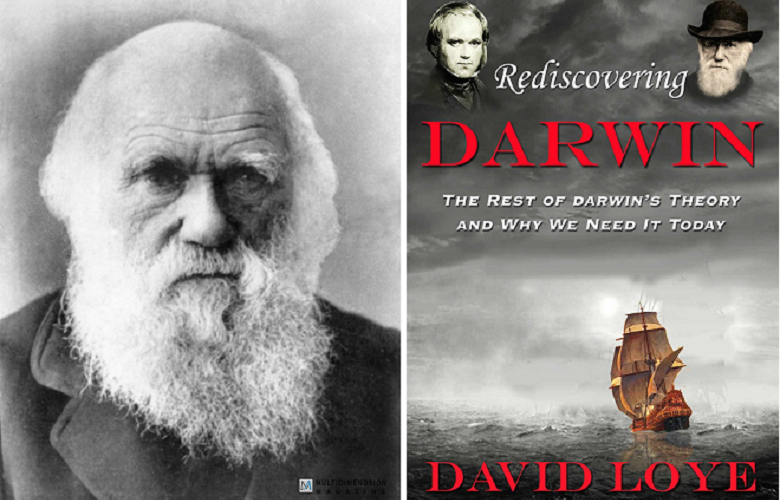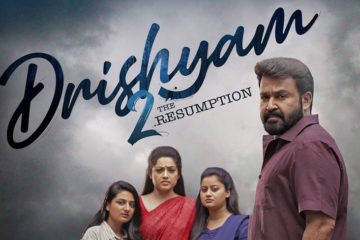Written By : Riaz Quadir
Paris, France
Book Review
Rediscovering Darwin – By David Elliot Loye
If you are going to read only one book this year, or in the next two years or the next five, let David Elliot Loye’s “Rediscovering Darwin” be the one.
As has happened many times before in human history, original ideas get hijacked, transformed, mangled, suppressed or misrepresented by those who came after. The greater the ideas the greater the chances of any of this or a combination of these happening to them. The irony is that such distortions happen more often by the proponents of the ideas rather than their opponents. That has been the case with the ideas of one of the greatest and most revolutionary scientists of all time, Charles Darwin. He changed the way humanity thinks of the living world – and of itself. In doing so he also created an army of scientists and followers who become the adherents of a new belief system, evolution science, and consequently, its gatekeepers. And it is through the gatekeepers that Darwin’s ideas spread and proliferated across the world. But it was only those of his ideas that suited them.
At the core of Darwin’s ideas on evolution was, and has been for over a hundred years (as presented by the gatekeepers), the leitmotif of “the survival of the fittest” (Darwin’s own words), culminating in Dawkins’ famous ‘The Selfish Gene’ (1978). That, Darwin went on to develop his more complete theory, which continued well past his initial “survival of the fittest” as applicable to the animal kingdom, to one that looks upon love, empathy, morality and ethics as the higher aspects of evolution, and tools that will be required for its ultimate survival, was ignored and even suppressed by the gatekeepers.
The dominating economic structure of Darwin’s time, mercantilism embodied the prevailing beliefs of the Protestant work ethic which had already shifted from a more laid back, worship-oriented Catholicism to that of productivity and the shunning of laziness as evil. The Age of Enlightenment in Europe saw the rise of science and the gradual decline of religion. Darwin’s entry into the European stage was a great boon for the fledgling new economic theory, capitalism that was fast taking over and the “survival of the fittest” or competitive behaviour became its certifiable scientific rationale. It would take a century for capitalism in its most naked form to turn the age old cardinal biblical sin of greed, into a virtue. The huge economic success of this alone can be seen as the primary reason, albeit unconscious, for Darwin’s gatekeepers in preventing his latter theories, developed in ’The Descent of Man, and Selection in Relation to Sex’ to see the light of day.
David Elliot Loye (93), the American author, psychologist, and evolutionary systems scientist, lifts this century old shroud from Darwin’s complete works, and reveals to us how we had been hoodwinked for so long into believing in the inevitability of our brutish and selfish nature; that the fittest was necessarily the one who could competitively, and often violently, conquer the other and be the best suited to survive in the long run. Loye’s scientific credentials are impeccable. Among a long list of them, is a Masters in pre-clinical psychology and a Doctorate in social psychology from Princeton University. Later he was a faculty member at Princeton and then at UCLA School of Medicine (1972-78] and Research Director for the Program on Psychosocial Adaptation and the Future for UCLA’s Neuropsychiatric Institute.
A better part of David Loye’s 93 years have been spent in developing this theory, through many of his books and projects. Now in 2018, he brings it all together in his latest book `Rediscovering Darwin’. This book has been profoundly endorsed and praised by some of the leading scientists, thinkers and writers from the fields of evolutionary biology, psychology, neurology, sociology, systems science, chaos theory… over 30 of whose pre-publication reviews are included in the book.
What is David Loye saying and how does it impact our lives?
The answer is paradigm shifting and mind-boggling.
Most of the 20th century has been shaped by the economics and the mind set of the Europeans who created it. This was largely driven by how man saw himself (and his mission on Earth). The Darwinian leitmotif of the “survival of the fittest” is what has driven it. Thousands of years of cultures across humanity telling us the opposite, that there was something beyond material pragmatism, appealing to a higher moral self, was ignored and downright labelled as “primitive” and left aside for the romantics, never to be a part of rational science. It has been a hard fight – and not completely lost, but all the things that challenged this partial Darwinian principle had become at best, ineffective platitudes. Our unshakeable faith in science saw to it.
What Loye has done is turn it all around, saying that Darwin’s science is not what it was made out to be by the gatekeepers. If fact it was much more than that. What we considered “primitive” is actually the higher reaches of the evolutionary process for humanity. In his own words:
“A new understanding of sex, love, community, and of greatest importance, the eternal prime guidance of the moral sense.”
“Here you’ll also find the shock of Darwin’s long ignored case for spirituality and the place and function of religion in evolution.”
I can see mystics across ages led by Rumi, Saint Francis of Assisi, even the Lord Buddha himself (among others), beaming radiant smiles and murmuring compassionate we-told-you-so…




